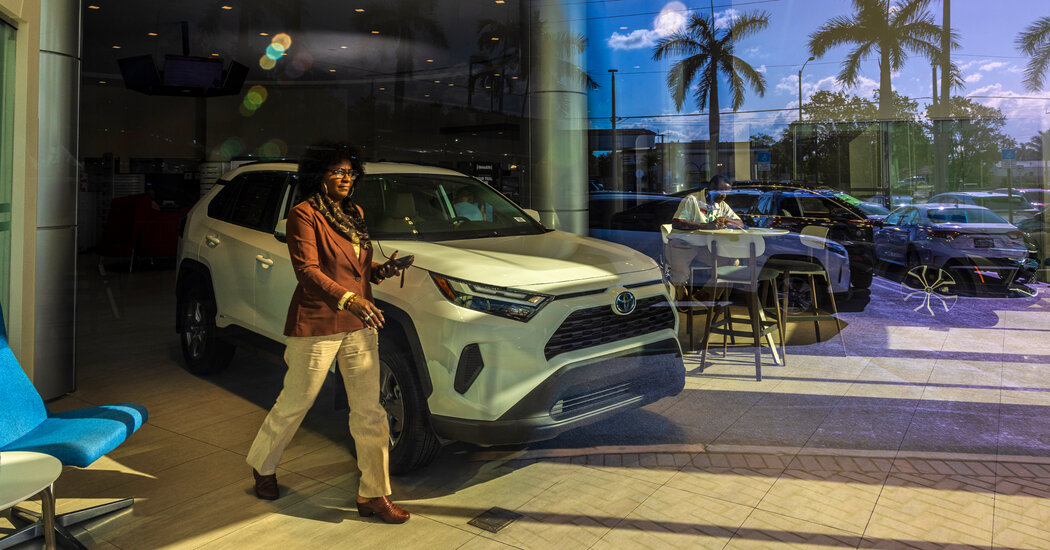Toyota, the world’s largest automaker, has been criticized for selling few electric vehicles, but its decision to focus on hybrids is paying off financially.
In today’s high-tech, high-stakes auto industry, fortunes can change quickly, and there’s no better example of that right now than Toyota Motor.
Not long ago, it looked as if Toyota had fallen dangerously behind in electric vehicles. Tesla, the electric car pioneer, has grown rapidly and become the world’s most valuable automaker. Seeing Tesla’s success, other companies, such as General Motors and Ford Motor, concluded that large numbers of consumers were poised to switch to battery-powered cars and trucks and began investing tens of billions of dollars to catch up.
Toyota, however, was more deliberate — or lethargic, its critics would say. It has introduced just two fully electric models in the United States so far, betting that its gas-electric hybrids and plug-in hybrid vehicles, which it has become known for, would remain popular and were sufficient to address climate change for now.
Amid all the enthusiasm for electric vehicles in the last few years, it seemed Toyota just didn’t get it.
“I was shocked when I first heard about Toyota’s strategy because I could see what Tesla was doing,” said Earl Stewart, a Toyota dealer in Lake Park, Fla., who also enjoys driving his Tesla Model S.
But in the last six months, sales of electric vehicles have slowed, and American car buyers looking to cut their fuel bill and tailpipe emissions have been flocking to hybrids. Now Toyota’s sales are booming, and the company is reporting huge profits.
